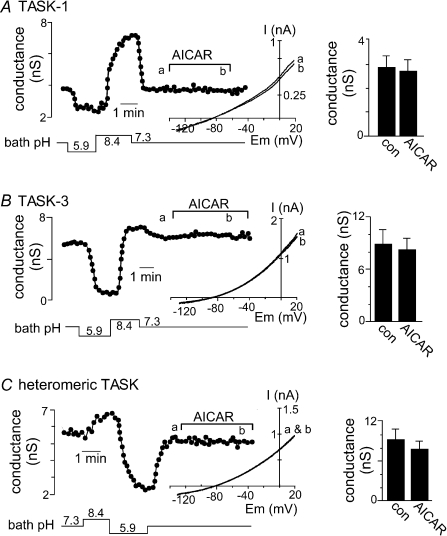Figure 1. TASK-1 and TASK-3 channels are not modulated by activated AMPK.
Whole cell currents were recorded from HEK 293 cells following transient transfection with TASK-1 or TASK-3. Traces of conductance (measured as a linear slope between −30 and +5 mV) as a function of time show characteristic responses of TASK-1 (A), TASK-3 (B) and heteromeric TASK channels (C) to changes in bath pH; acidification from pH 7.3 to pH 5.9 inhibits TASK channels whereas alkalization to pH 8.4 activates TASK channels. At pH 7.3, 3–5 min applications of AICAR (2 mm) had no discernable effect on TASK channel conductance. Insets, current–voltage (I–V) relationships characteristic of TASK-1 and TASK-3 were obtained from depolarizing voltage ramp commands (−130 to +20 mV at 0.2 V s−1) during control conditions (a) and exposure to AICAR (b). Bar graphs show averaged conductance (n= 5) of the relevant TASK channels at pH 7.3 in the absence and presence of AICAR. These results indicate that AICAR-mediated activation of AMPK does not affect activity of recombinant TASK channels.

